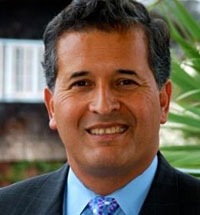The unioniest pro-union bill by a labor-loving legislator

Sen. Juan Vargas wants to bust union busters hired by government agencies
By Dave Maass
Sen. Juan Vargas, a Democrat representing a chunk of San Diego, has introduced a new bill that would bar government entities from hiring outside firms to challenge public employees’ rights to collectively bargain.
The official legislative counsel summary of SB 931 says the bill would “prohibit public agencies from using public funds to pay outside consultants or legal advisors for the purpose of counseling the public employer about ways to minimize or deter the exercise of rights guaranteed” under public-employee labor laws.
“That astonishing,” Richard Rider, chairman of San Diego Tax Fighters and outspoken opponent of labor unions, said after CityBeat emailed him the bill.
“The goal is basically is to hamstring politicians and administrators from challenging and establishing the limits on union power,” Rider says. “It leaves them without the ability to seek expert advice…It makes it a very unbalanced match up.”
Supporters of SB 931 openly call the measure the “Bust a Union Bill,” since it is designed to prevent government agencies from hiring union busters, or, in more polite terms, law firms that specialize in representing employers in labor disputes.
“The bottom line is public money should not be spent to basically destroy the public workforce,” says Lakesha Harrison, president of AFSCME Local 3299, which represents University of California workers. “That money can be used for getting funds for the university and building coalitions or to take down student fees.”
The union came to Vargas with the bill after discovering the UC system paid $3.5 million to Littler Mendelson, a law firm that describes itself as a team of big guns that are uniquely prepared to take on “the world’s most powerful labor organizations.” The firm’s labor-related services include: “union avoidance strategies,” “union decertification,” and “preparing strike responses.”
Harrison argues that internal legal counsel should be sufficient and that high-powered and high-priced union busters should be removed from the equation. Rider counters that if unions are allowed to hire pro-labor consultants, it only makes sense for government agencies to also seek expert counsel.
“The idea is apparently you’re not allowed to even look into what are the legal limits of collective bargaining rights,” Rider says. “I guess collective-bargaining rights will, by default, be whatever union people say they are and you’re not allowed to seek advice to challenge those assertions.”
According to FollowtheMoney.org, public-sector unions were Vargas’ second greatest source of campaign funds, accounting for $76,650 in contributions to his 2010 state senate run. Working Families for Vargas Senate 2010, an independent-expenditure committee backed by public-employee unions, spent $485,000 supporting Vargas.
[ Source: San Diego City Beat ]


